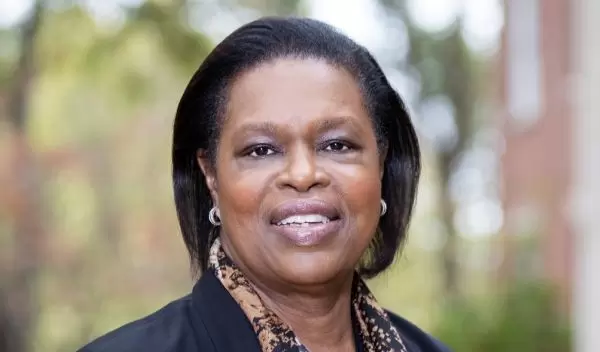
NSF selects Kaye Husbands Fealing to head the Social, Behavioral, and Economic Sciences Directorate
The U.S. National Science Foundation has selected Kaye Husbands Fealing to head the Directorate for Social, Behavioral and Economic Sciences (SBE).
Husbands Fealing is dean of the Georgia Institute of Technology Ivan Allen College of Liberal Arts and former chair of the Georgia Tech School of Public Policy. She specializes in the science of science and innovation policy, the public value of research expenditures and the underrepresentation of women and minorities in STEM fields and the workforce.
"Dr. Husbands Fealing’s expertise and experience as a leader both in academia and government are rich perspectives that we need as we advance this agency into the future," said NSF Director Sethuraman Panchanathan said. "Kaye has an excellent track record of fostering scientific discovery and the mission of NSF, and she brings the kind of enterprise focus that we need to promote the progress of science and advance the nation’s health, prosperity, and welfare.”
Before her position at Georgia Tech, Husbands Fealing taught at the University of Minnesota Humphrey School of Public Affairs and was a study director at the National Academy of Sciences. Prior to her time at the University of Minnesota, she was the William Brough professor of economics at Williams College, where she began her teaching career in 1989.
She developed and was the inaugural program director for NSF’s Science of Science and Innovation Policy program and co-chaired the Science of Science Policy Interagency Task Group, chartered by the Social, Behavioral and Economic Sciences Subcommittee of the National Science and Technology Policy Council. At NSF, she also served as an Economics program director. Husbands Fealing was a visiting scholar at the Massachusetts Institute of Technology Center for Technology Policy and Industrial Development, where she conducted research on the North America Free Trade Agreement's impact on the Mexican and Canadian automotive industries and on the alliances between aircraft contractors and their subcontractors.
Husbands Fealing is an elected member of the American Academy of Arts and Sciences and an elected fellow of both the National Academy of Public Administration and the American Association for the Advancement of Science (AAAS). She was awarded the 2023 Carolyn Shaw Bell Award from the American Economic Association's Committee on the Status of Women in the Economics Profession (CSWEP), as well as the 2017 Trailblazer Award from the National Medical Association Council on Concerns of Women Physicians. She is a member of the International Women’s Forum, Georgia Chapter.
Husbands Fealing also serves as chair of NSF’s Committee on Equal Opportunities in Science and Engineering; a member of NSF's Directorate of STEM Education Advisory Committee and AAAS' executive board; and a board member for the Society for Economic Measurement. She has served on several committees and panels, including AAAS committees; National Academies panels; Council of Canadian Academies panels; American Academy of Arts and Sciences working groups; NSF’s Social, Behavioral, and Economic Sciences Advisory Committee; the National Institutes of Health’s National Institute of General Medical Sciences Council; the General Accountability Office’s Science, Technology Assessment, and Analytics Polaris Council; and CSWEP.
At Georgia Tech, she co-chaired the Arts@Tech Institute Strategic Planning committee and has served on the Institute for Data Engineering and Science Council, the Intellectual Property Advisory Board, and the Ivan Allen College Diversity Council.
SBE supports basic research focused on human behavior and social organizations, as well as how social, economic, political, cultural, and environmental forces affect the lives of people from birth to old age and how people in turn shape those forces.
SBE-supported scientists develop and employ rigorous methods to discover fundamental principles of human behavior at levels ranging from cells to societies and across space and time. Such fundamental principles help researchers understand patterns of stability and change at the individual, group, organizational and societal level that promote the progress of science and advance the nation’s health, prosperity, and welfare.
Husbands Fealing holds a doctorate in economics from Harvard University, and a bachelor's in mathematics and economics from the University of Pennsylvania.
Her appointment begins April 22.
